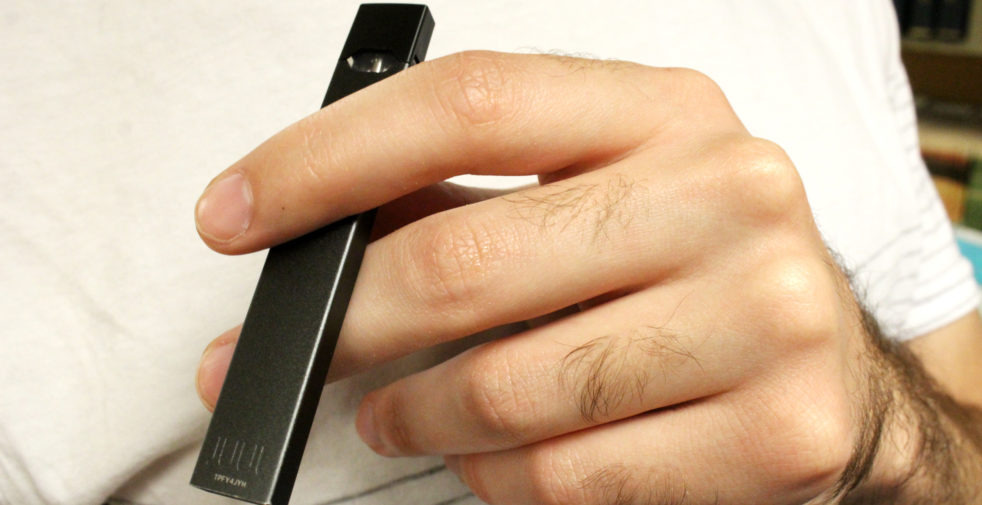The Trump administration is considering banning the sale of flavored e-cigarettes in the United States. The move comes after the Atlanta-based Centers for Disease Control and Prevention (CDC) released a report on Sept. 6 warning citizens not to use the devices after a series of related deaths.
The use of e-cigarettes has reached near epidemic levels among young adults, with almost 40% of high school and college students reporting that they had used a vape product within the past thirty days. Flavored e-cigarettes make up a large portion of this usage, and the proposed ban is intended to curb the popularity of e-cigarettes among young adults.
The CDC report stated that they had received reports of more than 200 cases of hospitalizations due to lung disease that were linked strongly to the use of tetra-hydro-cannabinol (THC) vaporizers, as well as nicotine e-cigarettes. Among the hospitalizations, the report stated that there were at least two confirmed deaths.
One of the early warnings that the CDC included was that there was likely a link between the hospitalizations and a vitamin E oil added to certain THC vaporizers. The reported cases mainly referenced e-cigarettes and vaporizers using nicotine and THC oils, although there were some that used a mixture of the two substances.
Following the lead of the administration, the state of New York has banned most flavored e-cigarette varieties, which makes it the second state to do so after Michigan, which issued a six month ban that started on Sept. 4. Tobacco and menthol flavors are the only varieties allowed to be sold, and a spokesperson for the state indicated an interest in examining whether menthol should be targeted as well. The state is also planning on increasing the e-cigarette sales tax to twenty percent; the state currently also applies a $4.35 excise tax to all packs of cigarettes sold.
The state of California is also taking on the issue of flavored e-cigarettes. Governor Gavin Newsom issued an executive order creating a $20 million public awareness campaign about the risks inherent in the use of e-cigarettes and has asked that the state legislature send him a bill that would ban the sale of flavored e-cigarettes in the country’s single largest economy.
San Francisco based e-cigarette manufacturer Juul Labs has indicated an openness to increased regulation of the industry, citing a need to crack down on “counterfeit or knockoff” products. The company had a market valuation of nearly $40 billion earlier this year, although the announcement of bans on flavored e-cigarettes, including its best seller, mint, has dropped its valuation in recent days.
The company was previously reprimanded by the Food and Drug Administration (FDA) for dishonest and illegal advertising practices. Juul had previously claimed that its devices were less risky than traditional cigarettes, a claim not verified by the FDA. In Illinois, Juul is being sued by a teenager suffering from e-cigarette induced lung disease. The teen alleges that their marketing practices and flavors illegally targeted high school students and that his condition is a direct effect of that.
There have been additional reports of some e-cigarette users reverting back to traditional tobacco cigarettes. The Los Angeles Times covered the case of a twenty-one year old man who tweeted that he “bought Juul to quit smoking cigarettes,” and now he is “… smoking cigarettes to quit the Juul.”
